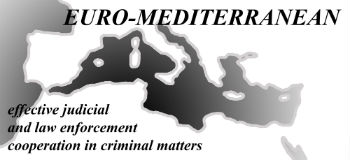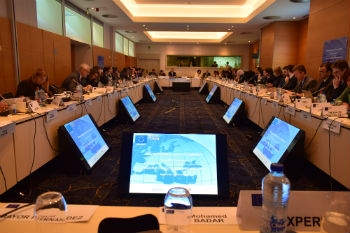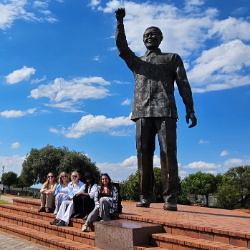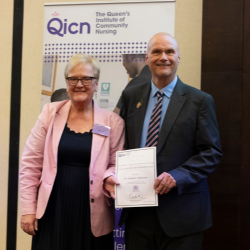-
Study
-
Quick Links
- Open Days & Events
- Real-World Learning
- Unlock Your Potential
- Tuition Fees, Funding & Scholarships
- Real World Learning
-
Undergraduate
- Application Guides
- UCAS Exhibitions
- Extended Degrees
- School & College Outreach
- Information for Parents
-
Postgraduate
- Application Guide
- Postgraduate Research Degrees
- Flexible Learning
- Change Direction
- Register your Interest
-
Student Life
- Students' Union
- The Hub - Student Blog
- Accommodation
- Northumbria Sport
- Support for Students
-
Learning Experience
- Real-World Learning
- Research-enriched learning
- Graduate Futures
- The Business Clinic
- Study Abroad
-
-
International
International
Northumbria’s global footprint touches every continent across the world, through our global partnerships across 17 institutions in 10 countries, to our 277,000 strong alumni community and 150 recruitment partners – we prepare our students for the challenges of tomorrow. Discover more about how to join Northumbria’s global family or our partnerships.
View our Global Footprint-
Quick Links
- Course Search
- Undergraduate Study
- Postgraduate Study
- Information for Parents
- London Campus
- Northumbria Pathway
- Cost of Living
- Sign up for Information
-
International Students
- Information for International Students
- Northumbria and your Country
- International Events
- Application Guide
- Entry Requirements and Education Country Agents
- Global Offices and Regional Teams
- English Requirements
- English Language Centre
- International student support
- Cost of Living
-
International Fees and Funding
- International Undergraduate Fees
- International Undergraduate Funding
- International Masters Fees
- International Masters Funding
- International Postgraduate Research Fees
- International Postgraduate Research Funding
- Useful Financial Information
-
International Partners
- Agent and Representatives Network
- Global Partnerships
- Global Community
-
International Mobility
- Study Abroad
- Information for Incoming Exchange Students
-
-
Business
Business
The world is changing faster than ever before. The future is there to be won by organisations who find ways to turn today's possibilities into tomorrows competitive edge. In a connected world, collaboration can be the key to success.
More on our Business Services-
Business Quick Links
- Contact Us
- Business Events
- Research and Consultancy
- Education and Training
- Workforce Development Courses
- Join our mailing list
-
Education and Training
- Higher and Degree Apprenticeships
- Continuing Professional Development
- Apprenticeship Fees & Funding
- Apprenticeship FAQs
- How to Develop an Apprentice
- Apprenticeship Vacancies
- Enquire Now
-
Research and Consultancy
- Space
- Energy
- AI Futures
- CHASE: Centre for Health and Social Equity
- NESST
-
-
Research
Research
Northumbria is a research-rich, business-focused, professional university with a global reputation for academic quality. We conduct ground-breaking research that is responsive to the science & technology, health & well being, economic and social and arts & cultural needs for the communities
Discover more about our Research-
Quick Links
- Research Peaks of Excellence
- Academic Departments
- Research Staff
- Postgraduate Research Studentships
- Research Events
-
Research at Northumbria
- Interdisciplinary Research Themes
- Research Impact
- REF
- Partners and Collaborators
-
Support for Researchers
- Research and Innovation Services Staff
- Researcher Development and Training
- Ethics, Integrity, and Trusted Research
- University Library
- Vice Chancellors Fellows
-
Research Degrees
- Postgraduate Research Overview
- Doctoral Training Partnerships and Centres
- Academic Departments
-
Research Culture
- Research Culture
- Research Culture Action Plan
- Concordats and Commitments
-
-
About Us
-
About Northumbria
- Our Strategy
- Our Staff
- Our Schools
- Place and Partnerships
- Leadership & Governance
- University Services
- Northumbria History
- Contact us
- Online Shop
-
-
Alumni
Alumni
Northumbria University is renowned for the calibre of its business-ready graduates. Our alumni network has over 253,000 graduates based in 178 countries worldwide in a range of sectors, our alumni are making a real impact on the world.
Our Alumni - Work For Us
A Northumbria University academic has added his expertise to an international handbook for cross-border cooperation on crime and justice - a project funded by the European Union.
Professor Mohamed Elewa Badar, Chair of Comparative and International Criminal Law at Northumbria Law School, and member of Northumbria's Centre for Evidence and Criminal Justice Studies (NCECJS) jointly drafted the 370-page EuroMed Justice Handbook on International Cooperation in Criminal Matters. The project received €25,000 in funding from the European Union as part of its EuroMed Justice IV project to contribute to the development of effective Euro-Mediterranean judicial and law enforcement cooperation in criminal matters in the European Neighbourhood South Partner Countries (ENSPC).
This project relates to the European Neighbourhood South Partner Countries (ENSPC), namely, Algeria, Egypt, Israel, Jordan, Lebanon, Libya, Morocco, Palestine and Tunisia. Its objective is to establish a system of cooperation based on three levels: a) National platforms for coordination; b) Regional platforms (South-South or Mediterranean); and c) EuroMed Justice platforms (North-South or Euro-Mediterranean).
The handbook is designed to be used by central authorities and other national judicial authorities, criminal justice practitioners, including judges and prosecutors, who are involved in international legal assistance.

As one of the international experts in criminal matters and the principal investigator who worked on the legal and gap analysis to produce the handbook, Professor Badar, explains:
“To effectively investigate and prosecute trans-border crime such as terrorism and cybercrime, close cooperation is required between States. The international mobility of offenders and the use of advanced technology make it more necessary than ever that law enforcement, prosecutors and judicial authorities collaborate and assist the State that has assumed jurisdiction over the matter.”
“Hence, an easy-going and user-friendly handbook was needed in order to enhance the international cooperation in criminal matters between the European neighbourhood South Partner Countries. The handbook provides guidance on mutual legal assistance, extradition, transfer of sentenced persons, conflict of jurisdiction and transfer of proceedings.”
Examples of some of the information contained within the handbook include; step-by-step advice on how to initiate and follow through on the processes of cross-border cooperation on cybercrime, terrorism, money laundering and asset recovery. Practical guidance on the wider use of special investigation techniques including cross border surveillance and the use of joint investigation teams (JITs).

Several of the activities within the project were developed in cooperation with United Nations Office on Drugs and Crime, United Nations Counterterrorism Executive Directorate, Council of Europe-European Committee on Crime Problems, EuroMed Police and the International Association of Prosecutors.
The project is managed by a consortium led by the Fundación Internacional y para Iberoamérica de Administración y Políticas Publicas – FIIAPP (Spain) with its Partners from the Centre for International Legal Cooperation – CILC (the Netherlands), the European Institute of Public Administration – EIPA (the Netherlands) and Justice Coopération Internationale – JCI (France).
The second phase of the project ‘Training of Trainers’ on judicial cooperation in criminal matters will begin in October, in Malta, where Professor Badar will continue his collaboration with EuroMed Justice.
Professor Badar adds: “There is a follow-up plan to examine the significance of the handbook and how it enhances the judicial systems of the eight South-Partner Countries (SPCs). We will look at the effect the training manual has had on practice or procedure in courts, and how the manual has changed thinking or opinion regarding cooperation in criminal matters between the SPCs.”
News
- National Fellowship honours Northumbria nursing leader
- Venice Biennale Fellowship
- First cohort of Civil Engineering Degree Apprentices graduate from Northumbria
- Northumbria expands results day support for students
- Northumbria academic recognised in the British Forces in Business Awards 2025
- £1.2m grant extends research into the benefits of breast milk for premature babies
- Northumbria graduate entrepreneur takes the AI industry by storm
- Study identifies attitudes towards personal data processing for national security
- Lifetime Brands brings student design concept to life
- New study reveals Arabia’s ‘green past’ over the last 8 million years
- How evaluation can reform health and social care services
- Researchers embark on a project to further explore the experiences of children from military families
- Northumbria University's pioneering event series returns with insights on experiential and simulated learning
- Support for doctoral students to explore the experiences of women who have been in prison
- Funding boost to transform breastfeeding education and practice
- A new brand of coffee culture takes hold in the North East
- BBRSC awards £6m of funding for North East Bioscience Doctoral Students
- £3m funding to evaluate health and social care improvements
- Balfour Beatty apprentices graduate from Northumbria University
- Long COVID research team wins global award
- Northumbria researchers lead discussions at NIHR event on multiple and complex needs
- Healthcare training facility opens to support delivery of new T-level course
- Young people praise Northumbria University for delivery of HAF Plus pilot
- Nursing academics co-produce new play with Alphabetti Theatre
- Research project to explore the experiences of young people from military families
- Academy of Social Sciences welcomes two Northumbria Professors to its Fellowship
- Northumbria University set to host the Royal College of Nursings International Nursing Research Conference 2024
- 2.5m Award Funds Project To Encourage More People Into Health Research Careers
- Advice available for students ahead of A-level results day
- Teaching excellence recognised with two national awards
- Northumbria law student crowned first Apprentice of the Year for the region
- Northumbria University launches summer activities to support delivery of Holiday Activities and Food programme
- UK health leader receives honorary degree from Northumbria University
- Use of AI in diabetes education achieves national recognition
- Research animation explores first-hand experiences of receiving online support for eating disorders
- Careers event supports graduate employment opportunities
- Northumbria University announces £50m space skills, research and development centre set to transform the UK space industry
- The American Academy of Nursing honours Northumbria Professor with fellowship
- New report calls for more support for schools to improve health and wellbeing in children and young people
- AI experts explore the ethical use of video technology to support patients at risk of falls
- British Council Fellows selected from Northumbria University for Venice Biennale
- Prestigious nomination for Northumbria cyber security students
- Aspiring Architect wins prestigious industry awards
- Lottery funding announced to support mental health through creative education
- Early intervention can reduce food insecurity among military veterans
- Researching ethical review to support Responsible AI in Policing
- Northumbria named Best Design School at showcase New York Show
- North East universities working together
- Polar ice sheet melting records have toppled during the past decade
- Beyond Sustainability
- Brewing success: research reveals pandemic key learnings for future growth in craft beer industry
- City's universities among UK best
- Famous faces prepare to take to the stage to bring a research-based performance to life
- Insights into British and other immigrant sailors in the US Navy
- International appointment for law academic
- Lockdown hobby inspires award-winning business launch for Northumbria student
- Lasting tribute to Newcastle’s original feminist
- Outstanding service of Northumbria Professor recognised with international award
- Northumbria academics support teenagers to take the lead in wellbeing research
- Northumbria University becomes UK's first home of world-leading spectrometer
- Northumbria's Vice-Chancellor and Chief Executive to step down
- Out of this world experience for budding space scientists
- Northumbria engineering graduate named as one of the top 50 women in the industry
- Northumbria University signs up to sustainable fashion pledge
- Northumbria demonstrates commitment to mental health by joining Mental Health Charter Programme
- Virtual reality tool that helps people to assess household carbon emissions to go on display at COP26
- EXPERT COMMENT: Why thieves using e-scooters are targeting farms to steal £3,000 quad bikes, and what farmers can do to prevent it
- Exhibition of lecturer’s woodwork will help visitors reimagine Roman life along Hadrian’s Wall
- Students reimagine food economy at international Biodesign Challenge Summit
- Northumbria storms Blackboard Catalyst Awards
- Breaking news: Northumbria’s Spring/Summer Newspaper is here!
- UK’s first ever nursing degree apprentices graduate and join the frontline
- Massive decrease in fruit and vegetable intake reported by children receiving free school meals following lockdown
- Northumbria awards honorary degrees at University’s latest congregations
Latest News and Features

Northumbria Academics Appointed to National Leadership Positions
Three academics from Northumbria University have been appointed to president positions across…

Northumbria University to co-host fifth Newcastle Climate Change Forum
Northumbria University, in collaboration with Newcastle University and Newcastle City Council…

Northumbria students gain policymaking experience through Civil Service challenge
Students from Northumbria University have gained valuable insight into government policymaking…

New funding to catalyse devolved cultural policy making
The AHRC Creative Communities programme based at Northumbria University has today announced…

Newcastle United kit given new life in unique sustainability collaboration
Fashion items made from recycled Newcastle United shirts have gone on display in Eldon Square…

Northumbria Social Work students gain global perspective on 4,000km South African placement
Five MA Social Work students from Northumbria University (Alice Henderson, Ava Lister, Avi…

Arts centre with a difference – Northumbria launches new series of public exhibitions
Northumbria University's School of Design, Arts and Creative Industries has announced the launch…

National Fellowship honours Northumbria nursing leader
A leading academic in palliative and end-of-life care at Northumbria University has been recognised…
Upcoming events
On Weaving
Gallery North

Holocaust Memorial Day 2026 - Bridging Generations: Generational Voices and Silences
The Great Hall
-

Commercialising SHAPE Innovations and Impact
Northumbria University
-

